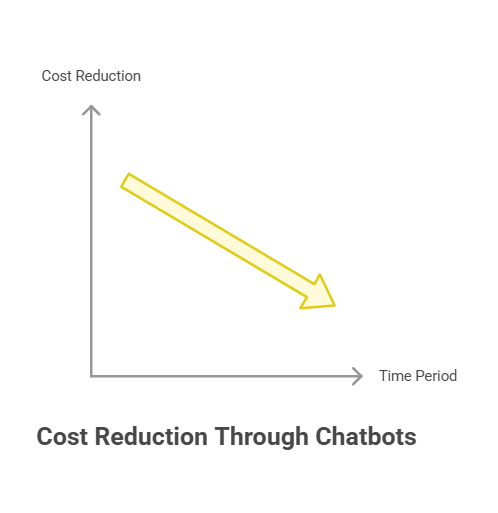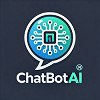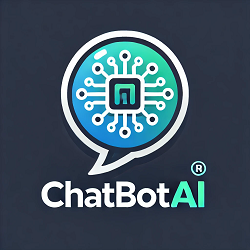By Dr. Dwi Suryanto
I. Introduction
In today’s fast-paced digital economy, businesses need tools that can streamline operations, enhance customer interactions, and deliver measurable results. That’s where chatbot AI comes in.
Chatbot AI has transformed the way companies communicate with their customers and handle repetitive tasks. Whether you’re running a small e-commerce store or a global enterprise, AI-powered chatbots offer a competitive edge by saving costs, improving efficiency, and driving customer satisfaction.
In this article, we’ll dive into how chatbot AI benefits businesses, exploring its impact across various industries and its potential to revolutionize customer engagement.
II. Cost Efficiency
One of the biggest advantages of chatbot AI is its ability to reduce operational costs. By automating repetitive and time-consuming tasks, businesses can save significant resources while maintaining high-quality service.
- Streamlined Customer Support: Chatbots can handle a large volume of customer inquiries, such as FAQs, order tracking, and account updates, without the need for additional human agents.
- Lower Overhead Costs: Instead of expanding support teams during peak seasons, businesses can rely on scalable chatbot solutions.
- Example in Action: A small e-commerce store implementing an AI chatbot reported a 40% reduction in customer service costs while increasing response speed.
With chatbot AI, businesses can optimize their spending and focus their resources on strategic growth.

III. Improved Customer Experience
Customers expect fast and efficient service—and chatbot AI delivers just that.
- 24/7 Availability: Unlike human agents, chatbots are always online, ensuring customers get instant support anytime, anywhere.
- Faster Response Times: Chatbots eliminate long wait times, answering inquiries in seconds.
- Personalized Interactions: By analyzing customer data, chatbots can recommend products or services tailored to individual preferences.
Why It Matters: A study revealed that 75% of customers are more likely to make a purchase if their questions are answered promptly. Chatbots not only meet this demand but exceed expectations with their speed and personalization.
IV. Enhanced Scalability
As businesses grow, so do their customer demands. Chatbot AI makes scaling up effortless.
- Handling Multiple Conversations: Chatbots can manage thousands of queries simultaneously without compromising quality.
- Managing Peak Traffic Periods: Whether it’s a Black Friday sale or a product launch, chatbots ensure seamless interactions during high-traffic events.
- Real-World Example: An online fashion retailer used a chatbot during a seasonal sale to handle 300% more inquiries, maintaining customer satisfaction without increasing staff.
Scalability is a game-changer for businesses looking to expand while maintaining efficiency.
Chatbot AI doesn’t just enhance customer interactions—it actively drives sales and boosts conversions by engaging potential buyers at the right time.
- Proactive Customer Engagement: Chatbots can initiate conversations with website visitors, offering help or guidance before they even ask. For example, a chatbot might greet a visitor with, “Looking for something specific? I’m here to help!”
- Personalized Recommendations: Using customer data, chatbots can suggest products tailored to a user’s preferences. This not only enhances the shopping experience but also encourages upselling and cross-selling.
- Seamless Checkout Assistance: From answering questions about shipping to guiding users through payment processes, chatbots reduce friction in the customer journey.
Case Study: A leading online electronics retailer implemented a chatbot to guide customers through their buying process. The result? A 25% increase in conversions within the first three months.
VI. Efficient Data Collection and Analysis
Every interaction with a chatbot generates valuable data, giving businesses insights they can use to optimize their strategies.
- Customer Behavior Insights: Chatbots can track common questions, pain points, and preferences, helping businesses tailor their products or services.
- Predictive Analytics: By analyzing trends in customer conversations, chatbots can predict future needs and preferences, enabling proactive decision-making.
- Streamlined Feedback: Businesses can use chatbots to collect feedback instantly, ensuring customer voices are heard and acted upon.
Example in Action: A SaaS company used chatbot-generated data to refine their onboarding process, reducing churn rates by 15%.
VII. Versatility Across Industries
The applications of chatbot AI are as diverse as the industries they serve. Here’s how different sectors leverage chatbot technology:
- E-commerce: Automates product recommendations, order tracking, and returns processing.
- Healthcare: Assists with appointment scheduling, medication reminders, and preliminary symptom checks.
- Education: Provides virtual tutoring, course recommendations, and real-time learning support.
- Finance: Helps users check balances, transfer funds, and understand financial products.
- Travel and Hospitality: Manages booking inquiries, provides travel updates, and suggests personalized itineraries.
This versatility makes chatbot AI a must-have tool for businesses in virtually every industry.
In today’s competitive market, businesses must stand out. Implementing chatbot AI can provide a significant edge over competitors by showcasing innovation and customer-centricity.
- Improved Brand Perception: Companies using AI chatbots are often viewed as forward-thinking and technologically advanced.
- Faster Problem Resolution: While competitors may rely solely on human support with longer response times, chatbots resolve issues instantly, enhancing customer loyalty.
- Consistency Across Touchpoints: Chatbots provide consistent communication across multiple platforms, from websites to social media, ensuring a seamless customer experience.
Example: A financial services firm adopted chatbot AI to answer customer queries on their website and mobile app. Not only did this reduce wait times, but it also boosted customer satisfaction scores by 20%, making the brand a market leader in digital support.
IX. Challenges and Solutions
While chatbot AI offers tremendous benefits, businesses may encounter challenges during implementation. Here’s how to address them:
1. Privacy and Data Security Concerns
- The Challenge: Handling sensitive customer data can raise privacy issues.
- The Solution: Ensure compliance with data protection laws like GDPR and use encryption to safeguard information.
2. Limitations in Understanding Complex Queries
- The Challenge: Chatbots might struggle with ambiguous or nuanced customer queries.
- The Solution: Implement a hybrid system where complex inquiries are seamlessly transferred to human agents.
3. Initial Setup Costs
- The Challenge: Developing and deploying a high-quality AI chatbot can require upfront investment.
- The Solution: Start with scalable, cloud-based chatbot platforms that grow with your business needs.
Addressing these challenges ensures a smoother integration of chatbot AI into business operations.
X. Conclusion
Chatbot AI is revolutionizing how businesses operate, offering unparalleled efficiency, scalability, and customer engagement. From reducing costs to driving sales, the benefits are clear across every industry.
By leveraging chatbot AI, businesses can streamline processes, provide exceptional customer experiences, and gain a competitive advantage in today’s fast-paced digital economy. While challenges exist, they can be overcome with thoughtful planning and the right tools.
Now is the time for businesses to embrace chatbot AI as a transformative tool for growth. Whether you’re a small business exploring automation or a large enterprise looking to scale, chatbot AI has something to offer.
Take Action Today
Ready to see how chatbot AI can benefit your business? Start exploring its potential, stay informed about the latest trends, and take your operations to the next level.
About the Author: Dwi Suryanto
Dwi Suryanto, Ph.D., is a leadership and management expert, as well as a self-taught programmer. With certifications in Generative AI, LLM Apps, and AI Agents, Dwi combines his leadership expertise with cutting-edge AI technology. He also holds certifications in ChatGPT, AI for Business, and Python Programming. Through his unique blend of skills, Dwi empowers businesses and individuals to thrive in the era of digital innovation.

